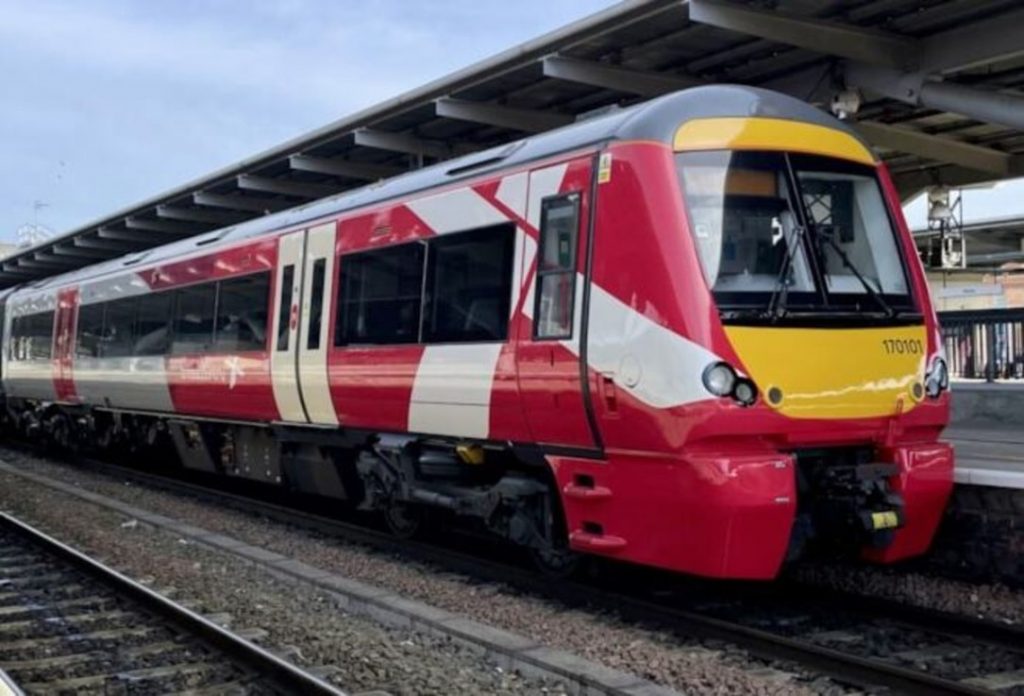Struggling rail operator CrossCountry has repeatedly breached its own internal performance targets despite cutting services late last year as part of a recovery plan, City AM understands.
The former Transport Secretary, Louise Haigh, approved proposals by the operator to run a reduced timetable for three months between August and November after its performance was labelled “dire.”
Cancellations have risen by an average of 15 per cent since the end of that remedial plan, analysis of data from the Office of Rail and Road (ORR) reveals.
CrossCountry put in place a series of performance indicators following the restoration of services in November, which included a maximum of 420 cancellations per month to avoid breaching strict commitments. It outlined the objectives in an internal document seen by City AM and circulated to Network Rail and its members in December.
Comparisons with ORR cancellation data suggest it breached those performance indicators in four of the last five months. Two of the monthly reporting periods saw total cancellations reach 749 and 929, significantly ahead of CrossCountry’s absolute worst benchmark.
In the immediate month following the remedial plan, the rail company, a subsidiary of Aviva Group, also breached its targets, cancelling 453 trains, according to the document. This was, however, a month in which travel chaos for many train firms worsened after a pay award to drivers meant many worked fewer overtime shifts.
One senior rail industry figure alleged CrossCountry is expected to fail to deliver a full timetable in May, although the operator denies this is the case.
The government has previously suggested it could fast-forward nationalising rail operators that fail to hit performance targets.
The firm says it is not in breach of its contract, a scenario that would mean the Department for Transport (DfT) could bring it under public ownership without compensation. Its current arrangement ends in 2031 and is one of the longest of any UK rail company.
The revelations surrounding CrossCountry’s faltering performance come after the Transport Secretary, Heidi Alexander, faced calls in parliament on Thursday to bring it into public ownership.
The conservative shadow transport minister, Jerome Mayhew, questioned Alexander on whether she would consider terminating its agreement. “We know it’s not complying with its obligations, so the minister could call in that contract. So why isn’t this the first operator to be nationalised under GBR?”
CrossCountry has faced significant disruption in recent years, due in part to a driver training backlog.
‘A failed operator’
Responding to the ORR’s data, a rail industry source described the company as a “failed operator.”
“The public is sick and tired of the situation, as shown by a recent Transport Focus customer satisfaction survey, which lists CrossCountry at the bottom of the table in every category.”
The problems can “no longer be ignored” by the government, the person added, “particularly as it will again fail to deliver its expected timetable in May.”
“CrossCountry must be taken into government control as soon as possible for the benefit of both passengers and taxpayers.”
Speaking in parliament on Thursday, Heidi Alexander said: “If there is terrible performance we can seek to break a contract earlier.
“I’m pleased there are some improvements on CrossCountry, we are seeing improvements on the train operating companies that have been brought into public ownership, particularly if you look at passenger journeys and revenue growth on TransPennine and LNER, there’s a really positive story to tell.”
A CrossCountry spokesperson said: “We work closely with the Department for Transport to update our timetable every six months, in line with standard industry practice. Our May 2025 timetable has been agreed with the Department, and will deliver additional capacity and services for customers across the country. Our December 2025 timetable bid is currently undergoing the standard review process with Network Rail, as is usual at this point in its design. In both cases, we will be running a full timetable and continue to meet our contractual obligations.
“Working in partnership with the Department for Transport and Network Rail train performance has improved significantly in the first three months of this year, following changes across the service that have reduced cancellations and improved punctuality. However, we recognise that there is more work to be done to ensure we consistently meet high service standards, improve performance, and provide a resilient service.”
